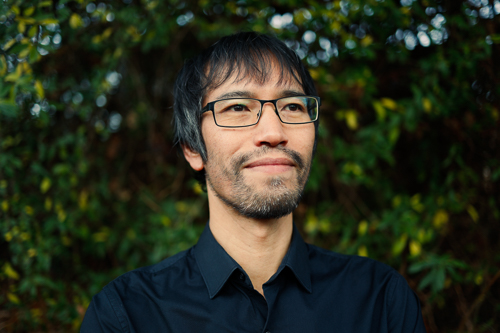He holds a PhD in Philosophy from Macquarie University, Australia, and a MA in Humanities from Tokyo University of Foreign Studies, Japan. As part of his MA research, he also studied philosophy and cultural sciences (Kulturwissenschaften) at Leipzig University, Germany.
What are you going to work with at IFIKK?
I am working on the Marie Skłodowska-Curie project “The Division of Ethics from Political Philosohy: Kant and Baumgarten on Right, Virtue, and Justice”. This project is connected to the project “The Kantian Foundations of Democracy” led by Reidar Kiljan Maliks, an expert in Kant’s political philosophy.
In examining the division of ethics from political philosophy, I engage in the following questions: Why are ethics and political philosophy separately treated? How did this separation emerge historically? And yet, why are philosophers still conflating these two domains? Methodologically, I seek to answer these questions with the following approaches: a detailed analysis of Kant’s and Kantian philosophy; and the history of early modern German philosophy. In my assessment, philosophy in the Kantian tradition has reinforced the division between ethics and political philosophy. However, for pre-Kantian philosophers, especially Alexander Gottlieb Baumgarten, the boundaries between ethics and political philosophy are less clearly demarcated.
I am among the few in the world to focus on Baumgarten whose works Kant used in his lectures for more than four decades. Since Baumgarten’s influence on the development of Kant’s ethics and political philosophy is uniquely significant, investigating this less known philosopher will allow me to answer the above questions in ways that have not been achieved before. By combining Maliks’s insights into Kant’s contemporaries and successors with my knowledge of Kant’s predecessors, I hope to be an integral part of the thriving Kantian community with a strong contextual method that covers a wide range of pre- and post-Kantian philosophers.
Can you tell us a bit about your research interests?
Since my undergraduate years, I have been fascinated by the enigmatic nature of German philosophers’ texts, especially those by Kant, Hegel, Schelling, and Heidegger. Even merely to understand these texts requires considerable effort and I enjoy this challenge.
One distinctive feature I particularly enjoy in examining Baumgarten is translating his work, Ethica philosophica, which has not been translated before, from Latin into English. Understanding Baumgarten’s texts is uniquely challenging, as he writes in Latin and philosophizes in a different manner from how Kant and post-Kantian philosophers do. I choose to explore Baumgarten also because there has been limited research on this important philosopher.
In line with my Marie Skłodowska-Curie project, I am interested in engaging in contemporary ethical and political issues. In tackling these issues, I consider it an advantage to have immersed myself in the history of German early modern philosophy. For, having equipped myself with the breadth and depth of perspectives that Kantian and German early modern philosophy has to offer, I have a versatile vision from which to offer novel perspectives to solving these issues.
What do you like to do in your spare time?
I enjoy playing table tennis, sometimes competitively. Under the Swedish influence, Oslo has an active and competitive table tennis scene. Since my first winter in this city, I have also returned to skiing after a hiatus in Australia where it barely snows. Further, I look forward to hiking and exploring Norwegian nature. I am grateful for the opportunity to work in this excellent environment to pursue my research and continue my sporting activities.
